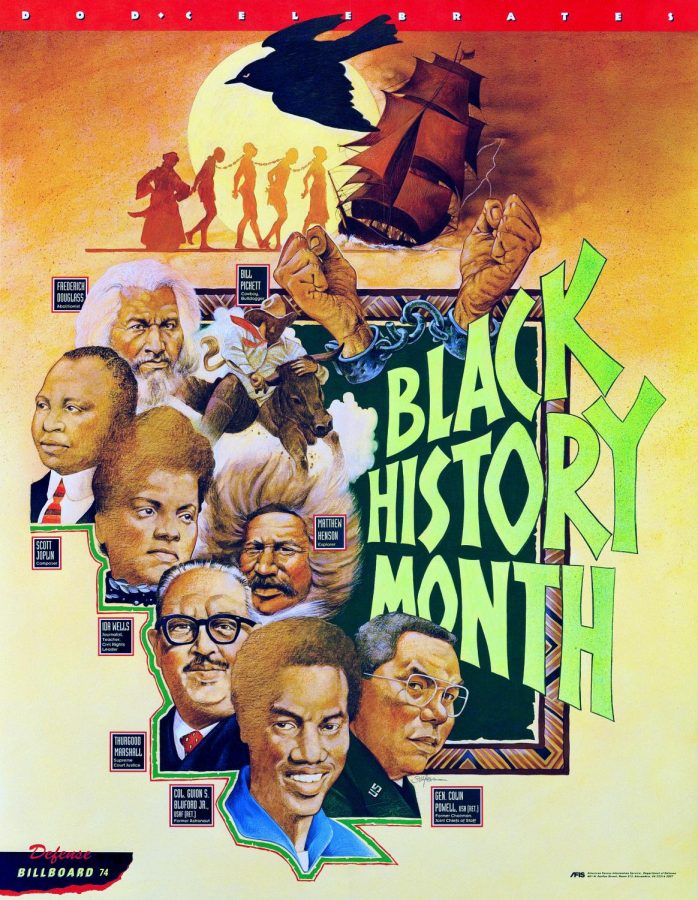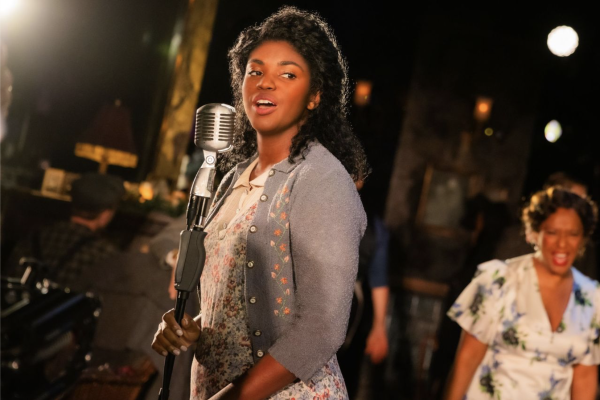Column: Black History Month celebrates American greatness
Photo Courtesy U.S. National Archives Catalog
Each Black History Month, we thank our black ancestors for the opportunities they bravely fought for, even as we continue to struggle to strive for more.
February 7, 2019
Without fail, two thoughts come to mind every year when February swings by: one, the frustration expressed by James Baldwin not so long ago that American history has been taught without “cognizance of my presence.” Two, the negligence of many Americans to understand the necessity and importance of the established tradition of Black History Month, going as far as branding it “racist.”
I won’t bother explaining why Black History Month isn’t racist. At this juncture in American history, one must be entirely unconscious of the state of our union to dismiss the white supremacy and racial ignorance that continues to prevail in America.
If I could, I would banish the term “post-racial” from our vocabulary. Electing a black president once did not save white people from privilege, even if it did make the world a little better. What surprises me about racial ignorance today is that American exceptionalism dominates even our teachings of history and Americans consciously choose to ignore true aspects of this history.
After white Americans enslaved an entire race for 400 years, stripping them of the basic privileges guaranteed to any other human being under our Constitution and incarcerating two thirds of that population under the guise of law and order, we have the right not to “forget about the past.” We get 28 days each year to celebrate the excellence that prevailed within this brutal history, to honor those history forgot or erased and celebrate one another as we continue to struggle for racial equality.
That in and of itself comes with responsibility — a responsibility to make American history inclusive of our stories in whatever way we must, even if it means reminding our society throughout February that our lives matter 365 days of the year. I am reminded of a quote by Vernon Jordan, in a speech he gave at Howard University in 2002. In the context of Black History Month, it salutes the black ancestors we thank for the opportunities they bravely fought for, even as they weren’t able to see those struggles come to fruition.
“You are where you are today because you stand on somebody’s shoulders. And wherever you are heading, you cannot get there by yourself. If you stand on the shoulders of others, you have a reciprocal responsibility to live your life so that others may stand on your shoulders. It’s the quid pro quo of life. We exist temporarily through what we take, but we live forever through what we give.”
It’s a solemn fact that many parallels exist in black history that resonate too closely with how black life is treated today. It was Emmett Till then and it’s Trayvon Martin now. From the police brutality that resulted in men and women dying for equality of livelihood then, to the men and women dying now for the audacity of equality in coffee shops, dorm buildings and traffic stops.
For a country that is desperate for black culture, but still devalues black life, it should come as no surprise that black Americans refuse to applaud fixtures of the brutal history against us — like the Pledge of Allegiance or the National Anthem, both of which feature phrases that remain unfulfilled. In the past, we’ve sacrificed everything to believe in equality, and we’ll continue to do so.
But, in the midst of that pain, I find joy to see the comparisons of success, from each stride we make today across all industries to the struggles to survive and thrive that allowed us to have the chance to even do so.
First it was Josephine Baker, the first black woman to star in a major motion picture, and now it’s 14-year-old Marsai Martin, the youngest executive producer in Hollywood. It was Coretta Scott King who black women of the 1960s looked to, and it’s Michelle Obama, the most educated First Lady to grace our history books, that they look to today.
Our history is dark, but we have always paved a path for the success of future generations. So, this month, The News will dedicate a column each week to this celebration — a small gesture to a community ingrained in the foundation of this country and essential to that American greatness we all applaud today.
For the culture, indeed.



















